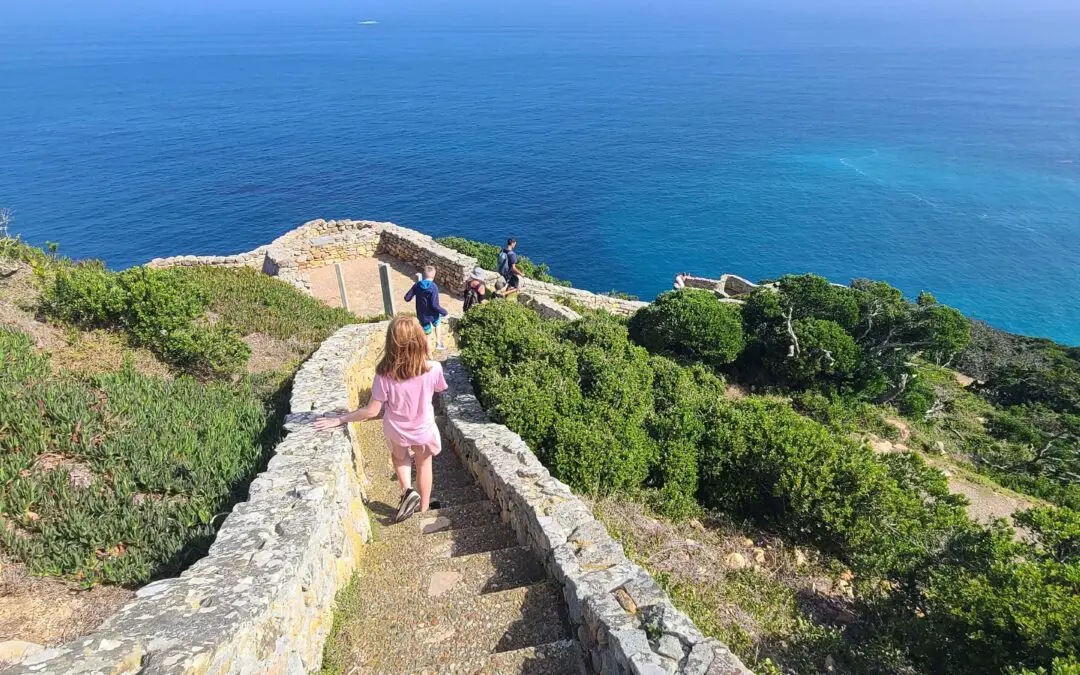My trip planning is quite extensive. I try to immerse myself in videos as well as reading to get a good understanding of the culture and people prior to the trip. For that reason, I was quite surprised by a few things while in South Africa for the first time. A few items on this list, I discovered in my research, but still found them unique in person. The rest came from first hand experiences or speaking to local people – tour guides, drivers, etc. Some of these topics are pretty heavy, but understanding the culture and people is how we make the world smaller. I hope you will enjoy the list and feel a bit more prepared if you are planning a trip to South Africa.
- Grill Versus Brai
- Safari by Highway
- Minibus Taxi
- Race Terminology
- Water Quality
- Infrastructure & Political Uncertainty
- Load Shedding
- Rioting
- Penguins
- Unique Accent
- Diversity of Geography
- Beauty
Grill Versus Brai
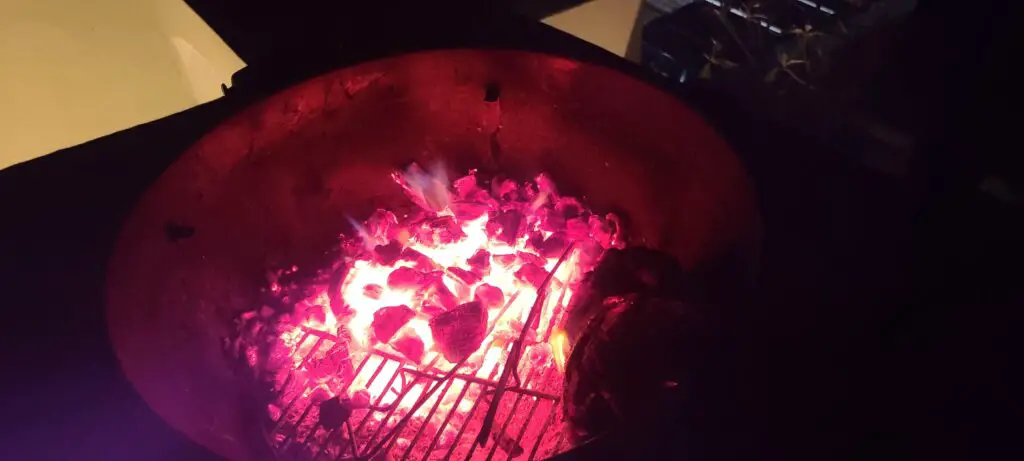 Meat and grilling are a very important part of eating in South Africa, but you quickly learn that the terms “grill” or “grilling” are not the correct terminology. Both the noun and verb is “brai” (prounounced with a long I sound). The Weber brai is on your patio. A brai can be a long event of setting up the perfect fire for cooking meat later in the day. And I’m going to brai the sausage. You might find mention on websites for parks as people will set up their brai in public to enjoy time with family and friends. You also might see a brai taking place on the stoop of a building after work in the city. To brai is definitely taken seriously and a strong social custom. We were able to enjoy a late night simplified brai with tour guides who became friends and I’m grateful to have appreciation for this cultural tradition.
Meat and grilling are a very important part of eating in South Africa, but you quickly learn that the terms “grill” or “grilling” are not the correct terminology. Both the noun and verb is “brai” (prounounced with a long I sound). The Weber brai is on your patio. A brai can be a long event of setting up the perfect fire for cooking meat later in the day. And I’m going to brai the sausage. You might find mention on websites for parks as people will set up their brai in public to enjoy time with family and friends. You also might see a brai taking place on the stoop of a building after work in the city. To brai is definitely taken seriously and a strong social custom. We were able to enjoy a late night simplified brai with tour guides who became friends and I’m grateful to have appreciation for this cultural tradition.
Safari by Highway
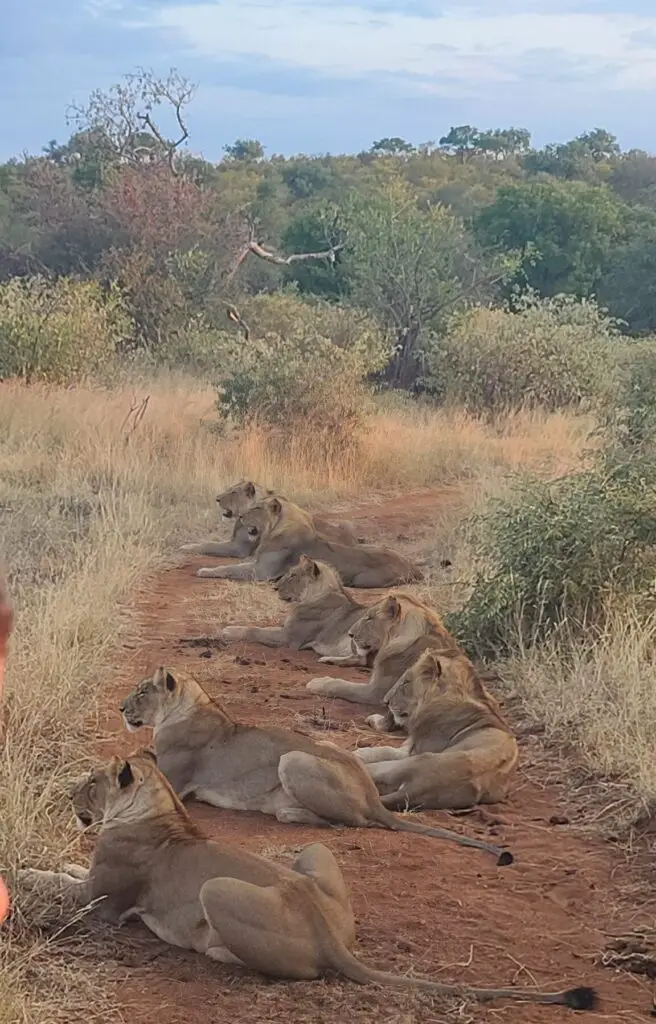 We chose to safari in a private reserve in the Great Kruger National Park Area. Once we left the highway, we traveled on the dusty roads to the lodge. Over the next few days, the scenery was what I had envisioned of a safari. There were also moments where we were near the parks borders and we would see roads and major highways. This was a fun dichotomy to me as I had built up what a safari looks like as a very remote setting. You can also find photos of cars lined up within the park around a wildlife spotting, very similar to US National Parks. This was not our experience within the reserve as they limit the number of vehicles in proximity to wildlife.
We chose to safari in a private reserve in the Great Kruger National Park Area. Once we left the highway, we traveled on the dusty roads to the lodge. Over the next few days, the scenery was what I had envisioned of a safari. There were also moments where we were near the parks borders and we would see roads and major highways. This was a fun dichotomy to me as I had built up what a safari looks like as a very remote setting. You can also find photos of cars lined up within the park around a wildlife spotting, very similar to US National Parks. This was not our experience within the reserve as they limit the number of vehicles in proximity to wildlife.
Minibus Taxi
While traveling anywhere in South Africa, but especially in the larger cities, you will see minibus taxis. They are white large vans with four rows of seats, typically with a colored stripe down the side. I would not recommend tourists attempt to use these on your own without a local or guide. You need to know where you’re going, the manner of hailing as well as how to communicate and monitor your destination. Everyone in the minibus has a different destination so the driver will need reminders. It is certainly the most affordable travel method and supports the black community economically. There are complicated political and safety implications for how this industry operates. The video below explains it further and shows a first-hand account.
We were able to ride in a minibus taxi once while on a township tour. We felt safe because we were with a guide who could show us what to do and communicate with the driver.
Race Terminology
This is a tricky topic for Americans as we spend so much effort on political correctness including who is allowed to use what words and what words are off limits. To experience the driver of our airport transfer on arrival in Cape Town casually identifying himself as “colored” was shocking. We were assured many times throughout our visit that the terms “black” and “colored” are acceptable to use. It’s important to understand why.
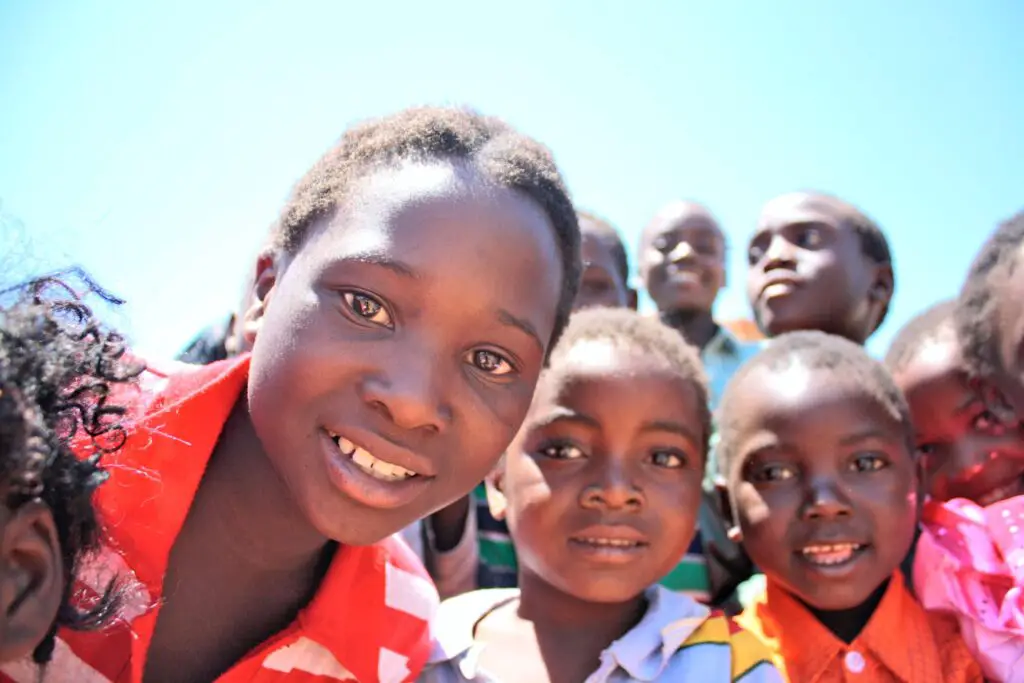 This all relates to apartheid when people became classified for the purpose of separation and power. There was a hierarchical system which forced black or native people out of the cities into townships (typically with poor living conditions). The colored people were those of multi-racial heritage and were higher ranking than the black people. There are several subgroups and most of these people live in the Cape area. In Cape Town, the colored neighborhoods are between the main city and the black neighborhoods.
This all relates to apartheid when people became classified for the purpose of separation and power. There was a hierarchical system which forced black or native people out of the cities into townships (typically with poor living conditions). The colored people were those of multi-racial heritage and were higher ranking than the black people. There are several subgroups and most of these people live in the Cape area. In Cape Town, the colored neighborhoods are between the main city and the black neighborhoods.
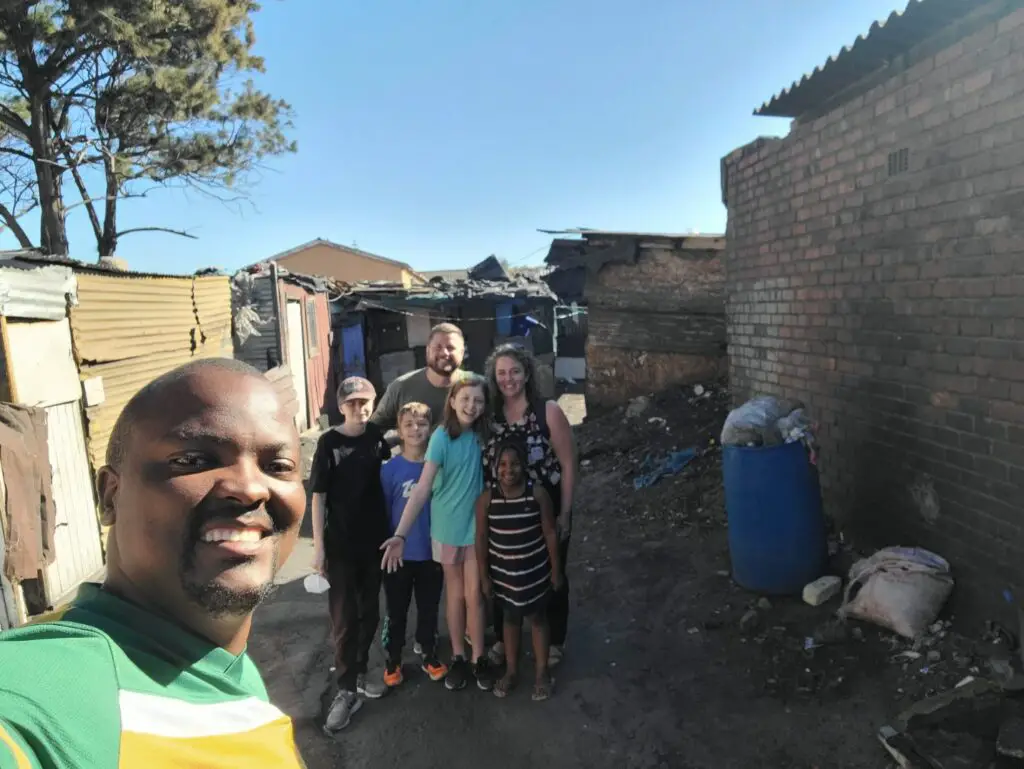 Although apartheid ended over thirty years ago, the communities are still divided in this way. And even though black South Africans make up over eighty percent of the population, it seems the systems put in place through apartheid continue to keep most black South Africans from improving their economic situation for generations. There is a lot of pride in the townships and we saw that even those residents who “make it out” through education as lawyers or doctors, etc. will build houses in the townships because it is the community with which they affiliate.
Although apartheid ended over thirty years ago, the communities are still divided in this way. And even though black South Africans make up over eighty percent of the population, it seems the systems put in place through apartheid continue to keep most black South Africans from improving their economic situation for generations. There is a lot of pride in the townships and we saw that even those residents who “make it out” through education as lawyers or doctors, etc. will build houses in the townships because it is the community with which they affiliate.
To get a better feel for this, I highly recommend a township tour and speaking to as many locals who are willing as possible. You may sadly also want to be prepared for a hint of underlying racism when speaking to white locals.
To learn more about this topic, there are also great online resources like South African History Online who are devoted to representation in the history taught to future generations of South Africans.
Water Quality
When researching water quality in the cities we would be visiting, I read repeatedly of the high quality of South African tap water. Having recently had an excellent experience drinking the tap water in Croatia, I decided to trust these dozens of articles and message board posts. I am including this because I would not wish my experience on anyone else. Within a full day of our arrival in Cape Town, I was extremely sick for a full 24 hours. I do not typically have travel related illness and I do drink a LOT of water, but I would not chance it and we didn’t drink anything that wasn’t purified for the remainder of our trip. Water quality in rural areas is an ongoing problem and after getting sick, some locals told me that recent droughts had cause issues with their local water. Bottled remains the way to go.
Infrastructure & Political Uncertainty
As an outsider, I had only positive impressions of the ruling party in South Africa. After all they were the party of Nelson Mandela, but, of course, maintaining power for 27 years can cause problems and corruption. This was openly discussed with us by several people, even Uber drivers during our stay.
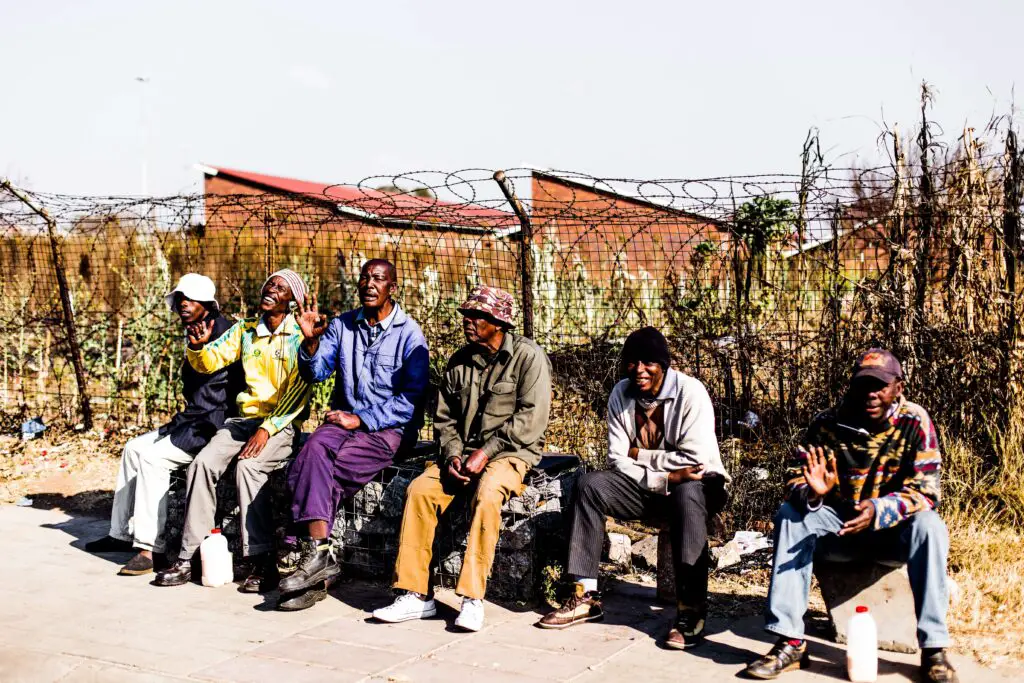 Between the pandemic, high unemployment, and racial inequality, the economic condition of the country is on shaky ground. Transportation routes (roads, train tracks) across the county are not being maintained in a way that promotes economic growth. Rising frustrations within lower economic communities have led to rioting and unrest. Several South Africans told us they didn’t know if their country would survive in its current form. I hope a return of tourism and potentially more diversity in elected officials will turn around some of the challenges South Africa has faced.
Between the pandemic, high unemployment, and racial inequality, the economic condition of the country is on shaky ground. Transportation routes (roads, train tracks) across the county are not being maintained in a way that promotes economic growth. Rising frustrations within lower economic communities have led to rioting and unrest. Several South Africans told us they didn’t know if their country would survive in its current form. I hope a return of tourism and potentially more diversity in elected officials will turn around some of the challenges South Africa has faced.
Load Shedding
This was probably the most frustrating part of our time in South Africa and somehow I completely missed it in advance of our travel. Eskom, the country’s energy provider, cannot provide sufficient energy output to support the county’s need. In order to combat this, there is discussion of further diversifying energy sources. In the meantime, South Africans live with rolling blackouts called “load shedding”. Based on where you live, you can use an app to track what level of load shedding (how many times per day) and what hours they will occur.
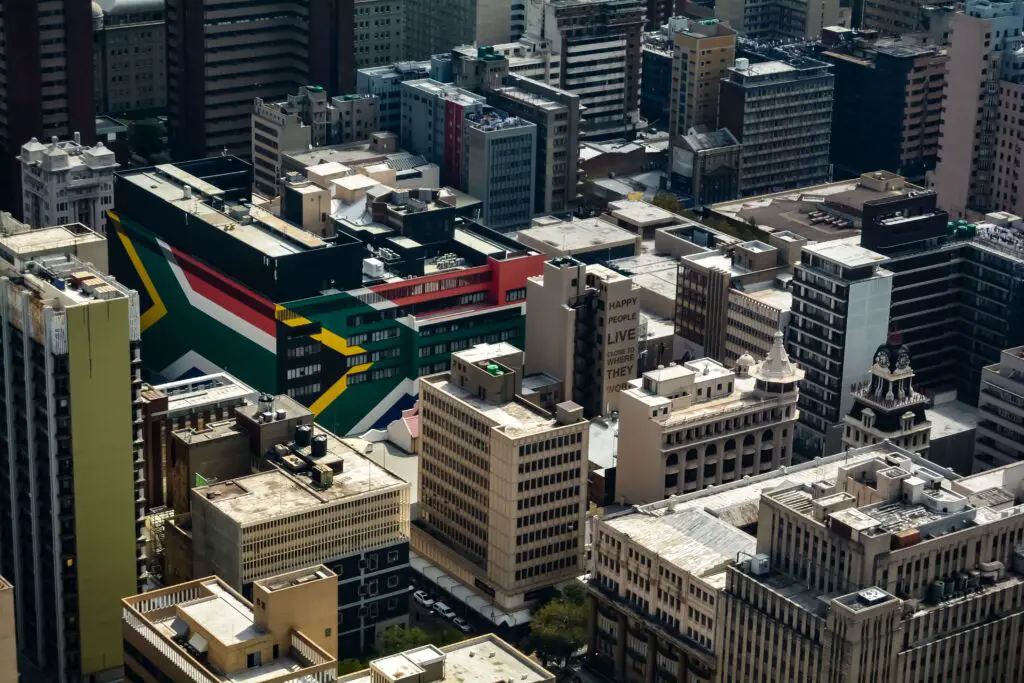 Not knowing this, we were shocked the first time our fans and sound machine turned off in the middle of the night. We also experienced these periods at different times of day. We typically use Wi-Fi to communicate over WhatsApp while traveling internationally so this became tricky when we were ordering Ubers or meeting tour guides and were unaware of their communication. It was also hot. We stayed seaside,but could not leave doors open at night due to animals. The power outage also sent our rental’s security company to inquire why we were offline twice.
Not knowing this, we were shocked the first time our fans and sound machine turned off in the middle of the night. We also experienced these periods at different times of day. We typically use Wi-Fi to communicate over WhatsApp while traveling internationally so this became tricky when we were ordering Ubers or meeting tour guides and were unaware of their communication. It was also hot. We stayed seaside,but could not leave doors open at night due to animals. The power outage also sent our rental’s security company to inquire why we were offline twice.
I’m not alone in my frustration. Although South Africans are used to this almost daily occurrence, the impact on businesses of all size is measurable in the economy. You can download the Eskom app in advance to understand what load shedding will look like in the areas you will be visiting.
Rioting
Due to the political unrest mentioned above, there has been some rioting around the country. The worst of this occurred in 2021, but since that time, it has continued on a smaller scale. Drivers of tourists know where these may occur and make route changes accordingly. Our own driver took two different routes to and from the safari lodge due to riots. This is most important to keep in mind if you are self-driving, particularly in the Northern part of the country.
Penguins
If you are researching a trip to South Africa, you have no doubt come across the South African Penguins (or Jackass Penguins) of the Boulder Beach area. What amazed me most is the opportunity to demystify an animal I have always thought of in cold climates by swimming at the same beach where they live.
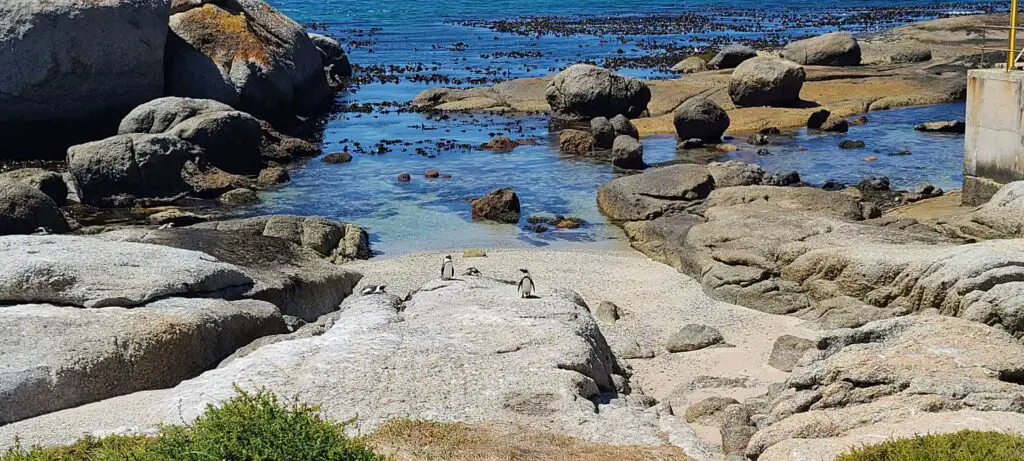 The penguins are quite unbothered by the humans around them and quietly nest near the boulders, paths, and even in town. We saw penguins, flightless birds, on top of giant boulders, not knowing how they got there. People were respectful and we only saw people admiring the up-close encounter with these fascinating birds.
The penguins are quite unbothered by the humans around them and quietly nest near the boulders, paths, and even in town. We saw penguins, flightless birds, on top of giant boulders, not knowing how they got there. People were respectful and we only saw people admiring the up-close encounter with these fascinating birds.
Unique Accent
Obviously you can listen to a South African accent easily, but I was surprised by how much I enjoyed it throughout our travel. There are several variations in different parts of the country, by people of differing ethnic backgrounds or by people who came from neighboring countries, but have lived in South Africa for many years. It’s so beautiful and unique. Trevor Noah, native South African, has a hilarious comedy set on this topic in this video:
Diversity of Geography
I love maps, but I have a hard time comparing the sizes of countries to one another. South Africa is about three times the size of Texas, but it contains a wide variety of geographic environments. Within this area, you can find desert, beaches, wetlands, mountains, grasslands, subtropical forest and extensive farmland and vineyards.
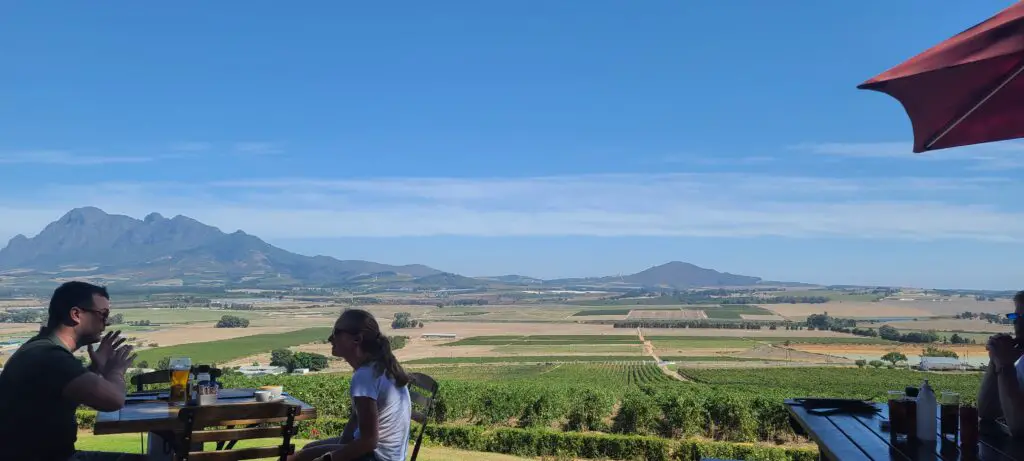 It is exactly this uniqueness that makes South Africa a great destination. Within a country where everything is a short flight or road trip away from each other, you can experience a myriad of travel experiences in one trip.
It is exactly this uniqueness that makes South Africa a great destination. Within a country where everything is a short flight or road trip away from each other, you can experience a myriad of travel experiences in one trip.
Beauty
Of course, it is partially the beauty of South Africa that drew us to visit. However, it simply cannot be captured in photos or videos in the same way it can be experienced. We arrived at our rental in Cape Town at night and were awe struck upon walking out on the balcony in the morning. To look one direction at the ocean and palm lined beachfront and then look the other direction at the beautiful Table Mountain was one of the most unique views we have enjoyed. Even moving around the city with the mountains overlooking us and peaking at the sea down the streets of tall city buildings proved quite beautiful.
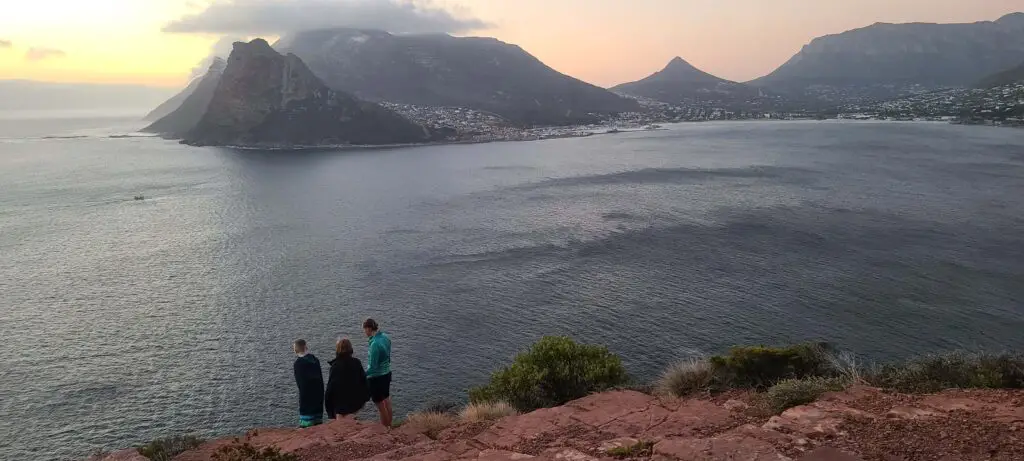 Johannesburg, although we didn’t see much of it, has its own type of bustling beauty. And, of course, being on safari offered gorgeous settings for wildlife sightings and sunsets. South Africa, you impressed us with your grandeur.
Johannesburg, although we didn’t see much of it, has its own type of bustling beauty. And, of course, being on safari offered gorgeous settings for wildlife sightings and sunsets. South Africa, you impressed us with your grandeur.
Final Thoughts
Hopefully these insights and experiences open the door for your visit. I highly recommend incorporating visits to the slavery and/or apartheid museums to get a better perspective on the recent experience of the South African people. As always, I most highly recommend talking with friendly locals, guides, and drivers about what is important to their South African experience.

